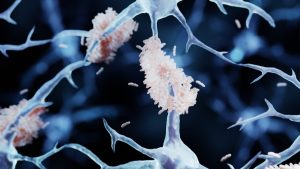Articles / Are we over-diagnosing PCOS in teens?

0 hours
These are activities that expand general practice knowledge, skills and attitudes, related to your scope of practice.
0.5 hours
These are activities that require reflection on feedback about your work.
0 hours
These are activities that use your work data to ensure quality results.
These are activities that expand general practice knowledge, skills and attitudes, related to your scope of practice.
These are activities that require reflection on feedback about your work.
These are activities that use your work data to ensure quality results.
Adolescents presenting with a combination of irregular, late or missed periods, acne, hirsutism and/or obesity are often diagnosed with PCOS, but these symptoms are common in young people and the label rarely changes management, paediatric and adolescent gynaecologist Professor Sonia Grover said in a recent Healthed lecture. Moreover, the label can lead to adverse outcomes such as unplanned pregnancy, depression, and abandoned weight loss efforts, she says.
The Rotterdam Criteria for diagnosing PCOS in adolescents contain an important contradiction, according to Professor Grover. While they acknowledge that menstrual cycles may be irregular for three years post-menarche—they recommend investigating irregular cycles from two years post-menarche.
“There is also no acknowledgement of confounding factors that may impact menstrual regularity in adolescents, including stress and anxiety levels as well as increased physical activity,” she adds.
While symptoms such as irregular periods, hirsutism, acne and obesity may tick the boxes for PCOS, they can be a normal part of adolescence and often have other underlying causes Professor Grover says.
Other reasons for irregular periods can include:
“More often than not, it’s going to be a more simple problem,” Professor Grover says.
“The later you start your periods, the longer it takes before your periods become ovulatory. So if you start your periods before the age of 10 or 11, then you’re probably going to have a reasonably regular cycle within 12 months. If you start your periods at 13, 14, or 15, it could take three, four, five, six years before your periods are regular, not for any reason other than the hypothalamic-pituitary-ovarian axis has not matured,” she explains.
Acne occurs in 93% of adolescents, although moderate to severe inflammatory acne is far less common, Professor Grover says. But teenagers worry about any acne. Uncommon causes such as non classical CAH do need to be considered.
While acute onset of hirsutism needs to be investigated, most other cases will simply require reassurance Professor Grover says, noting the subjective nature of how much hair is too much, along with ethnic differences that mean some people have more hair than others.
“Studies show that obesity better predicts irregular periods at the age of 18, rather than androgen levels or LH levels. So obesity is playing a big role in ongoing irregular periods, not the other factors we would link to PCOS,” Professor Grover says.
For Professor Grover, the deciding factor is whether the test will change management.
“I would do an FSH, an estrogen, a prolactin, a TSH, maybe a 17-hydroxyprogerone,” she says.
Any other tests would be based on individual circumstances—for example if a young woman has acanthosis and possible pre-diabetes, she would test hbA1C/fasting glucose.
She does not order androgen studies unless someone has recent onset of a deep voice.
“I have seen androgen producing tumours in that context, so sudden changes in virilization and evidence of excess androgens would drive me to test those, but otherwise, I do not because it’s not going to change my management.”
“If she’s got horrible acne, you and I can treat her horrible acne. I do not need her androgen studies to help me make that decision.”
She also notes that ultrasound is not recommended to check for PCOS within eight years of menarche as Polycystic Ovarian Morphology may be physiologically normal.
“There is enormous potential for significant negative side effects by using that label,” Professor Grover says.
“First and foremost, they think they’re infertile, they’re not using contraception and they present with unplanned pregnancies.”
“I have done terminations of pregnancies on too many young women who have not used contraception because they thought they were infertile because they had been told they had PCOS.”
The label also impacts mood, she says, as teenagers turn to Google and read “that there’s no cure, that it’s a chronic long-term condition, that it’s a leading cause for infertility. The list of negatives is really very substantial.”
“They’re going to have added depression, anxiety because they’re thinking, oh my God, I’ve got all these other problems now.”
Additionally, “Dr. Google has just told you that you are depressed because of your PCOS, which means that now nobody’s going to ask you about, are you actually being bullied at school? Is there another reason why you’re depressed? Because the presumption is, no, I’m depressed because I’ve got PCOS and the door is closed to exploring other options,” she says.
Women labelled with PCOS also have lower self-esteem, and may be less likely to try to reach a healthy weight because they buy into the myth they hear online that you can’t lose weight if you have PCOS.
“There’s very little evidence of any benefit from using that label in young women. I probably spend more time trying to take the label away.”
Population guidelines and PCOS guidelines typically recommend the same management for all the symptoms, Professor Grover notes.
Both recommend the combined oral contraceptive pill (COCP) for managing acne, hirsutism and irregular periods, she explains.
For obesity and metabolic disease, both guidelines recommend lifestyle interventions such as diet and exercise, and metformin for managing diabetes (with PCOS guidelines advising consideration of metformin if metabolic features are not adequately controlled with COCP alone).
Professor Grover suggests tackling the underlying lifestyle factors.
“So if their irregular periods because they’re stressed, let’s talk about stress and how we’re going to manage that. If we’re talking about weight issues, let’s talk about weight and exercise. Let’s talk about healthy living.”
“Let’s treat their heavy and painful periods. If they’ve got heavy periods, let’s use some tranexamic acid. Let’s use some nonsteroidals. We could use some cyclic progestogens. We can use OCP. We can use continuous OCP,” she continues. “Let’s fix the periods, but I don’t need a label.”
Based on this educational activity, complete these learning modules to gain additional CPD.

Menopausal Hormone Therapy - What Dose of Estrogen is Best?

Cardiovascular Benefits of GLP1s – New Evidence

Oral Contraceptive Pill in Teens

RSV and the Heart


Yes
No
Listen to expert interviews.
Click to open in a new tab
Browse the latest articles from Healthed.
Once you confirm you’ve read this article you can complete a Patient Case Review to earn 0.5 hours CPD in the Reviewing Performance (RP) category.
Select ‘Confirm & learn‘ when you have read this article in its entirety and you will be taken to begin your Patient Case Review.
Menopause and MHT
Multiple sclerosis vs antibody disease
Using SGLT2 to reduce cardiovascular death in T2D
Peripheral arterial disease
